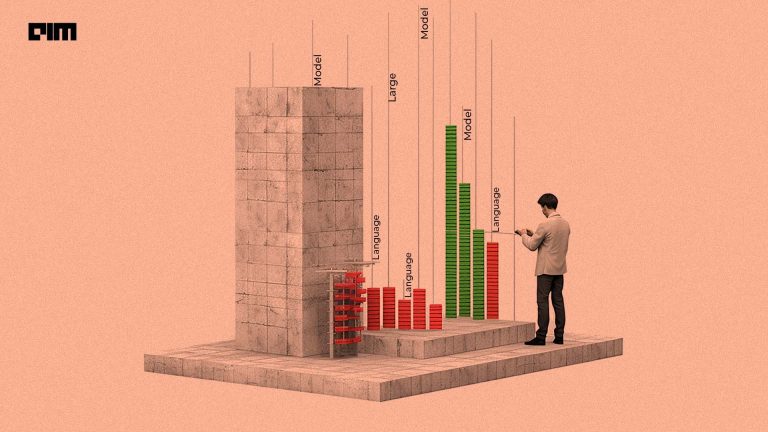The allure of innovative and specialised engineering programs, such as a PGP in AI, or an 11-month course in ML, offered by new-age universities in India, is undeniable. These courses have been designed in a way that would boost the current youth of India to be prepared for the jobs of the future.
Check: NIRF Ranking of Engineering Colleges
However, are there any jobs in India that are looking for such roles, specifically outside the startup sector?
Prof. V Ramgopal Rao, group Vice-Chancellor of BITS Pilani Campuses and former director of IIT Delhi, voiced a growing concern. He observed that while these innovative programs may seem exciting, they could inadvertently limit students’ prospects. “Students graduating with fancy discipline titles will neither be eligible for master’s programs in India nor for any government jobs,” Rao warned.
I am seeing some very innovative and fancy #undergraduate engineering programmes offered by some new-age universities in India. My worry is, these students graduating with fancy discipline titles will neither be eligible for masters programmes in India (they can't take GATE in…
— V. Ramgopal Rao, Ph.D. (@ramgopal_rao) August 9, 2024
While the crux of the problem lies in the rigid eligibility criteria of government jobs and higher education admissions, which are slow to adapt to the rapidly evolving educational landscape, the problem with the allure of these courses is also undeniable.
The rigidity could leave students in a precarious position, with limited options other than joining private industries or seeking opportunities abroad. At the same time, “Students and parents need to be mindful of what they are getting into,” concluded Rao, while also adding that there is nothing wrong with these programmes as they are approved by the government in the first place.
Voices from Academia
These concerns are echoed by many in the field. Mahadevan Chandramouleeswaran, an investor at Akshamala Tech Services, shared a personal account. His daughter, a top scorer in a five-year integrated M Tech software engineering course, found her application for an assistant professor position rejected because her degree did not align with the traditional 4+2-year degree format.
The academic community is increasingly aware of the challenges posed by these new programs. Dr. Shashi Bhushan Arya, a professor and national expert in aluminium recycling, noted a decline in enrollment rates in core branches of engineering. He suggested that universities may be using fancy degree titles as a marketing strategy to fill seats, particularly in expensive management quotas.
This trend raises questions about the long-term viability and recognition of these programs, while the number of STEM graduates in India are increasing rapidly.
However, not all voices are critical. Prof Ravikumar Bhaskaran, life fellow of IIT Kharagpur, pointed out that IIT Kharagpur has a history of introducing new B.Tech programs in emerging fields, often ahead of other institutions. While these programs initially faced scepticism regarding job prospects and postgraduate opportunities, they eventually gained acceptance and recognition.
Bhaskaran’s perspective offers a glimmer of hope, suggesting that new programs, given time and support, can find their place in the academic and professional landscape.
The root of the problem, as many experts suggest, lies in the inflexibility of current policies. Dharmendra Saraswat, a professor of agricultural and biological engineering, urges policymakers to bring about the necessary changes to match the evolving landscape of engineering education in India.
A Call for Policy Reform?
Similar cases have also been reported by others. The mismatch between new-age degrees and existing eligibility criteria isn’t just an isolated issue; it’s a systemic one. As Prof Rao highlighted, this problem isn’t limited to undergraduate programs.
He recently chaired a committee for scientist recruitment at a CSIR lab, where candidates from top institutions like IIT Bombay and IIT Delhi were disqualified because their degrees didn’t match the advertised requirement of “Electronics engineers.” Such cases underline the urgent need for coordination across government bodies and educational institutions to ensure that degree titles and job requirements align.
The rigidity of the system is further exemplified by Reuben Mathew, an aerospace engineer, who recounted his experience of being rejected for an engineering position at DRDO/NAL due to a mismatch between his degree title and the traditional degree names listed in the job advertisement.
Mathew’s frustration is a shared sentiment among many graduates of specialised programs, who find themselves excluded from opportunities despite possessing the necessary skills and experience.
Without these changes, graduates from these interdisciplinary programs may find themselves at a disadvantage. Dr. Chennakesava Kadapa, a lecturer in mechanical engineering, sees an opportunity in this challenge. He argues that IITs and other premier institutions should update the GATE exam and introduce new master’s programs in fields like AI, robotics, and sustainable energy.
This proactive approach could ensure that new-age programs are recognised and valued, both in academia and the job market.
The rise of specialised engineering programs is a response to the evolving demands of technology and industry. However, without corresponding changes in the eligibility criteria for government jobs and postgraduate programs, these degrees may leave students stranded.
































